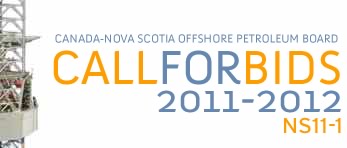

Previous Call for Bids
Regional Geoscience
- Regional Geoscience Overview
- Regional Resource Potential
- Figures
- References
- Exploration History
- Exploration Opportunities
Offshore Developments
Geoscience Research Centre
Data Management Centre
Rights Management
Work and Activity Authorizations
Resource Conservation
Offshore Health and Safety
Environmental Protection
Industrial Benefits
Written Comments
Key Contacts

Environmental Protection
Mandate
The Canada-Nova Scotia Offshore Petroleum Board (CNSOPB) is responsible for assuring protection of the environment during offshore oil and gas exploration and exploitation activities in the Nova Scotia offshore area.
Environmental Assessment
The CNSOPB is a federal authority under the Canadian Environmental Assessment Act (CEAA). Under the CEAA, offshore exploration activities require an environmental assessment prior to their authorization. All documentation related to environmental assessments conducted under the CEAA are posted on the CNSOPB Public Registry. As well, all projects are registered on the Canadian Environmental Assessment Public Registry.
The CNSOPB periodically conducts Strategic Environmental Assessments (SEAs), which identify environmental issues prior to opening areas for licensing. These issues may be addressed through future project-specific environmental assessments, or they may result in the Board deciding not to accept bids in a particular area. All subsequent projects in an area covered by an SEA, including seismic programs and exploratory drilling, require an environmental assessment prior to project approval.
A SEA of the Call for Bids area is presently being conducted and will be available in November, 2011.
A SEA for the Laurentian Subbasin was completed in conjunction with the Canada-Newfoundland and Labrador Offshore Petroleum Board in 2003. A SEA of Potential Exploration Rights Issuance for Eastern Sable Island Bank, Western Banquereau Bank, the Gully Trough, and the Eastern Scotian Slope was completed in 2003, and a SEA of the Misaine Bank area was undertaken in 2005. These assessments are also available on the Board’s website.
Statement of Canadian Practice with Respect to the Mitigation of Seismic Sound in the Marine Environment (the Statement)
The mitigative measures contained in this Statement were developed based on available scientific knowledge and are considered to be current best practice for minimizing potential adverse impacts of seismic activities that use air source arrays. The statement is taken into account during regulatory reviews which include the environmental assessment processes. Operators of seismic operations will be required to provide rationale for any modifications or variations to the mitigative measures that are set out in the Statement for consideration by the CNSOPB. The Statement and a background paper are available at http://www.dfo-mpo.gc.ca/oceans/management-gestion/integratedmanagement-gestionintegree/seismic-sismique/index-eng.asp
Environmental Protection Plan / Spill Contingency Plan Requirements
All operators must receive authorization from the CNSOPB prior to conducting any petroleum-related activity in the Nova Scotia offshore area. In support of an application for authorization, the operator is required to submit environmental protection documentation including a spill contingency plan. Proponents are also required to follow the Environmental Protection Plan Guidelines, the Offshore Waste Treatment Guidelines (OWTG) and the Offshore Chemical Selection Guidelines (OCSG) as part of the environmental protection process. These guidelines have been implemented by the CNSOPB, the Canada-Newfoundland and Labrador Offshore Petroleum Board, and the National Energy Board, and undergo review every 5 years. The OWTG are currently under review. The Board may impose additional mitigation measures or operating constraints as part of an authorization as a result of the findings of the project specific environmental assessment.
Monitoring of Authorized Work and Activities
The CNSOPB monitors Operator compliance with legislative and regulatory requirements along with any conditions affixed to an authorization by conducting reviews of daily operational reports, site inspections and audits, documentation/record reviews, and interviews at all levels of a proponent’s organization. The Board also conducts investigations into worker complaints, work refusals, accidents, spills and other significant incidents. Part III of the Accord Act delegates authority to the Chief Safety Officer (CSO), the Chief Conservation Officer (CCO), and safety and conservation officers, to conduct these types of activities.
Officers also have the ability to issue orders, including those to cease or limit activities in the event that an unacceptable risk is posed to worker health or safety. Non-compliance is generally addressed through a tiered process that motivates appropriate action from the operator; notwithstanding this, penalties for non-compliance can range up to $1-million per day plus time in jail.
For further information, contact:
Keith Landra
Director, Health, Safety and Environment
Canada-Nova Scotia Offshore Petroleum Board
6th Floor TD Centre
1791 Barrington Street
Halifax N.S. B3J 3K9
CANADA
Telephone: (902) 422-5588 (24 hour)
Fax: (902) 422-1799
